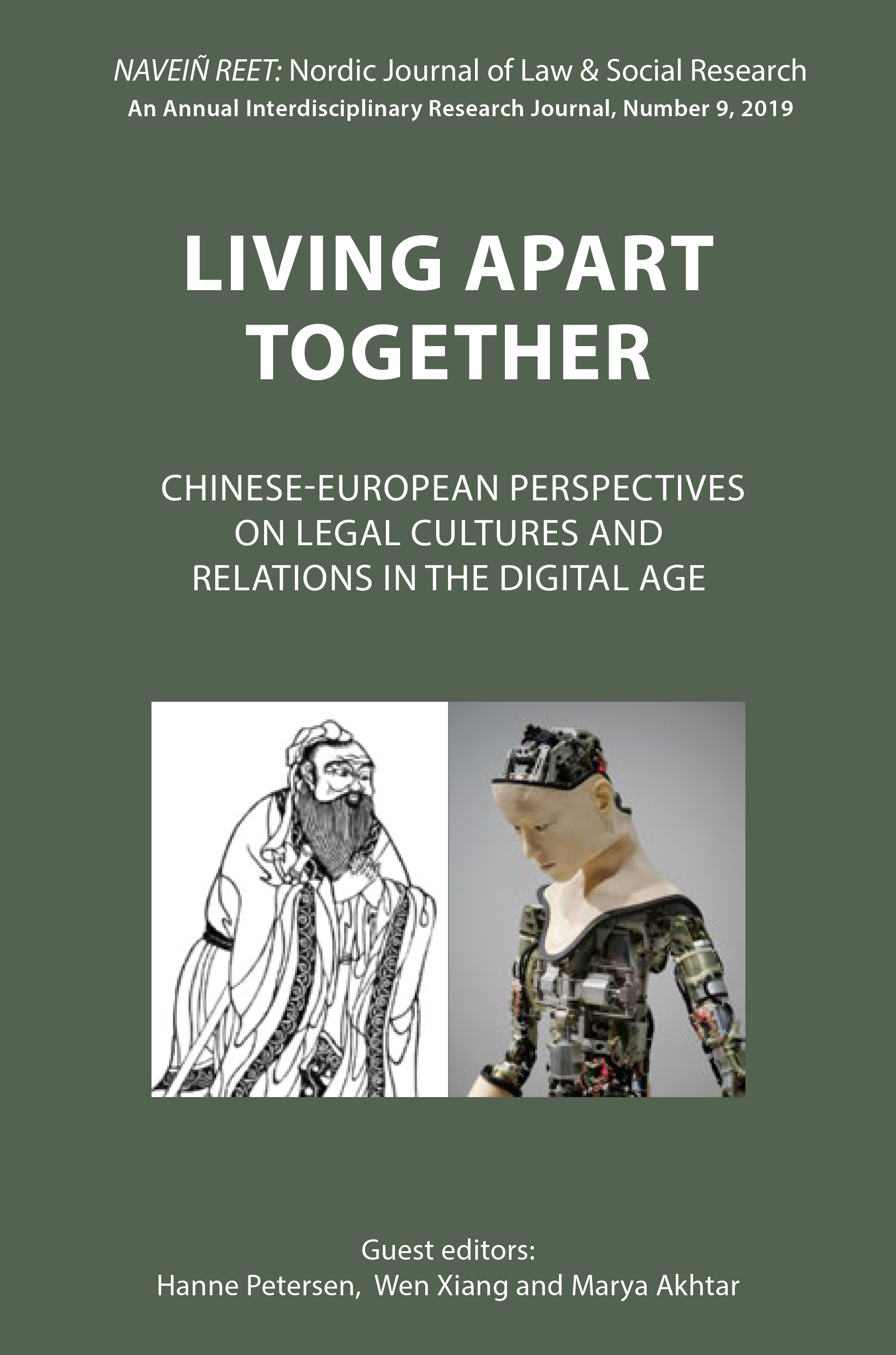Chinese Legal Professionals and Transformation of Gender Roles. A Case Study
DOI:
https://doi.org/10.7146/nnjlsr.v1i9.122152Abstract
Gender equality is a part of global policy, as specified for instance in The UN Convention on the Elimination of Discrimination against Women. The Committee on the Elimination of Discrimination against Women (CEDAW) is the body of independent experts that monitor the implementation of the convention. China has reported her initiatives to advance the rights of women to CEDAW. However, China studies indicate that there is a link missing between traditional Chinese values rooted in Confucianism on the one hand and Marxist political policy on the other. This deficiency could be a barrier to gender equality. Inspired by classical feminist theory and sociology of law, the article explores how members of the legal profession in a Chinese provincial city function when they deal with gender roles. The article builds on a small sample of qualitative data. It concludes that legal professionals may seek to get an effect on the construction of gender roles and equality for women. In their professional work, they have a potential for forging a link between Marxist modernization and commercialization on the one hand and traditional values on the other. Their function may depend on their individual awareness of their role, their support of gender equality, and their position vis-à-vis the state and party.
Downloads
Published
How to Cite
Issue
Section
License
Counting from number 12 (2022), articles published in NNJLSR are licensed under Attribution 4.0 International (CC BY 4.0). Readers are allowed to copy and redistribute the articles in any medium or format, to adapt and revise the articles, and use the articles for commercial purposes, provided that the readers give appropriate credits.
No Creative Commons licenses are applied on articles in number 1 (2009)-11 (2021). All rights reserved by the authors. Readers are allowed to download, read, and link to the articles published in volume 1 (2009)-11 (2021), but they may not republish or redistribute these articles without permission of the authors.

